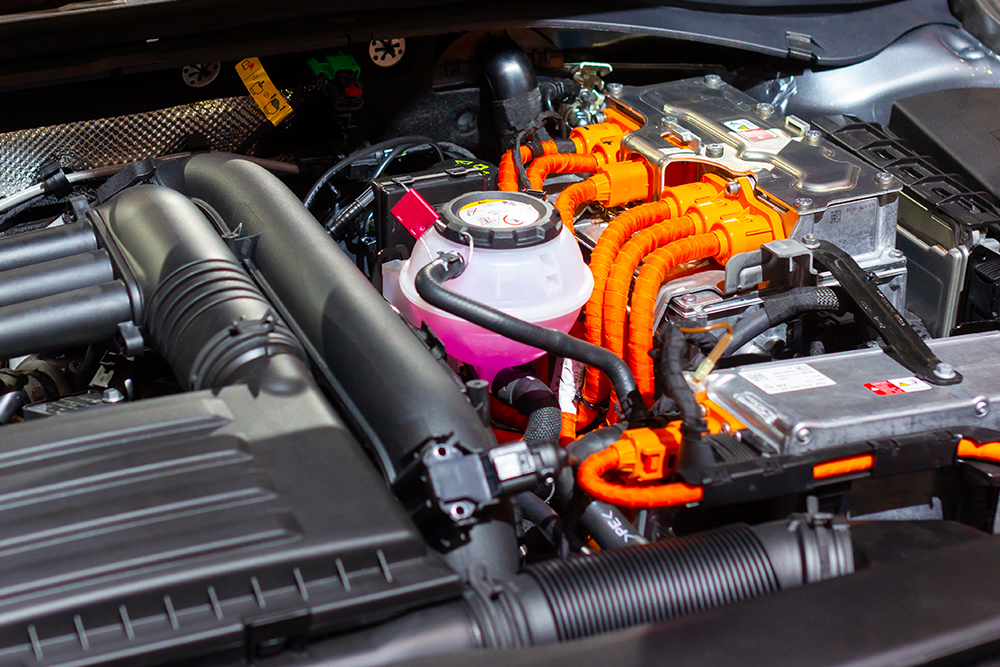Mon – Fri | 8:00am – 6:30pm
Sat | 8:00am – 3:00pm
Mon – Fri | 8:00am – 6:30pm
Sat | 8:00am – 3:00pm

Hybrid cars utilize advanced battery technology to enhance fuel efficiency and reduce emissions. Understanding the different types of batteries used in hybrid vehicles can help you make informed decisions about maintenance and replacements. Here’s a look at the most common battery types found in hybrid cars.
Nickel-Metal Hydride (NiMH) batteries are one of the most widely used battery types in hybrid vehicles. These batteries offer a good balance between energy density, cost, and durability. They have been the standard in many hybrids due to their ability to handle high charge and discharge cycles efficiently. NiMH batteries are known for their long life and reliability, making them a popular choice for many hybrid manufacturers.
Lithium-Ion (Li-ion) batteries are becoming increasingly common in newer hybrid vehicles and plug-in hybrids. Li-ion batteries offer higher energy density compared to NiMH batteries, which means they can store more energy in a smaller and lighter package. This type of battery also has a lower self-discharge rate, which enhances overall efficiency. While Li-ion batteries tend to be more expensive, their advantages in terms of performance and space efficiency make them a preferred choice for many modern hybrids.
Lithium Iron Phosphate (LiFePO4) batteries are a type of Li-ion battery known for their stability and safety. They offer a longer cycle life and are less prone to thermal runaway compared to other lithium-based batteries. LiFePO4 batteries are often used in high-performance hybrid vehicles due to their robust safety features and long-lasting power. Their higher cost is offset by their durability and enhanced safety.
Lead-Acid batteries are the oldest type of battery technology and are less commonly used in modern hybrid vehicles. They are generally found in older hybrid models or as auxiliary batteries in some hybrid systems. While lead-acid batteries are cost-effective and reliable, they are bulkier and have lower energy density compared to NiMH and Li-ion batteries. They are less efficient in terms of weight-to-power ratio but can still be found in some hybrid applications.
Supercapacitors, also known as ultracapacitors, are another energy storage option for hybrid vehicles, though they are less common. They store and discharge energy rapidly, making them useful for applications requiring quick bursts of power. Supercapacitors can complement traditional batteries by providing additional power for short durations and improving overall system efficiency.
Each type of battery used in hybrid cars has its own advantages and limitations. Nickel-Metal Hydride (NiMH) and Lithium-Ion (Li-ion) batteries are the most commonly used, with Li-ion batteries becoming more prevalent in newer models due to their higher energy density and efficiency. Understanding the different battery types can help you better manage your hybrid vehicle’s maintenance and make informed decisions about upgrades or replacements.
Image by Rimidolove from Envato Elements